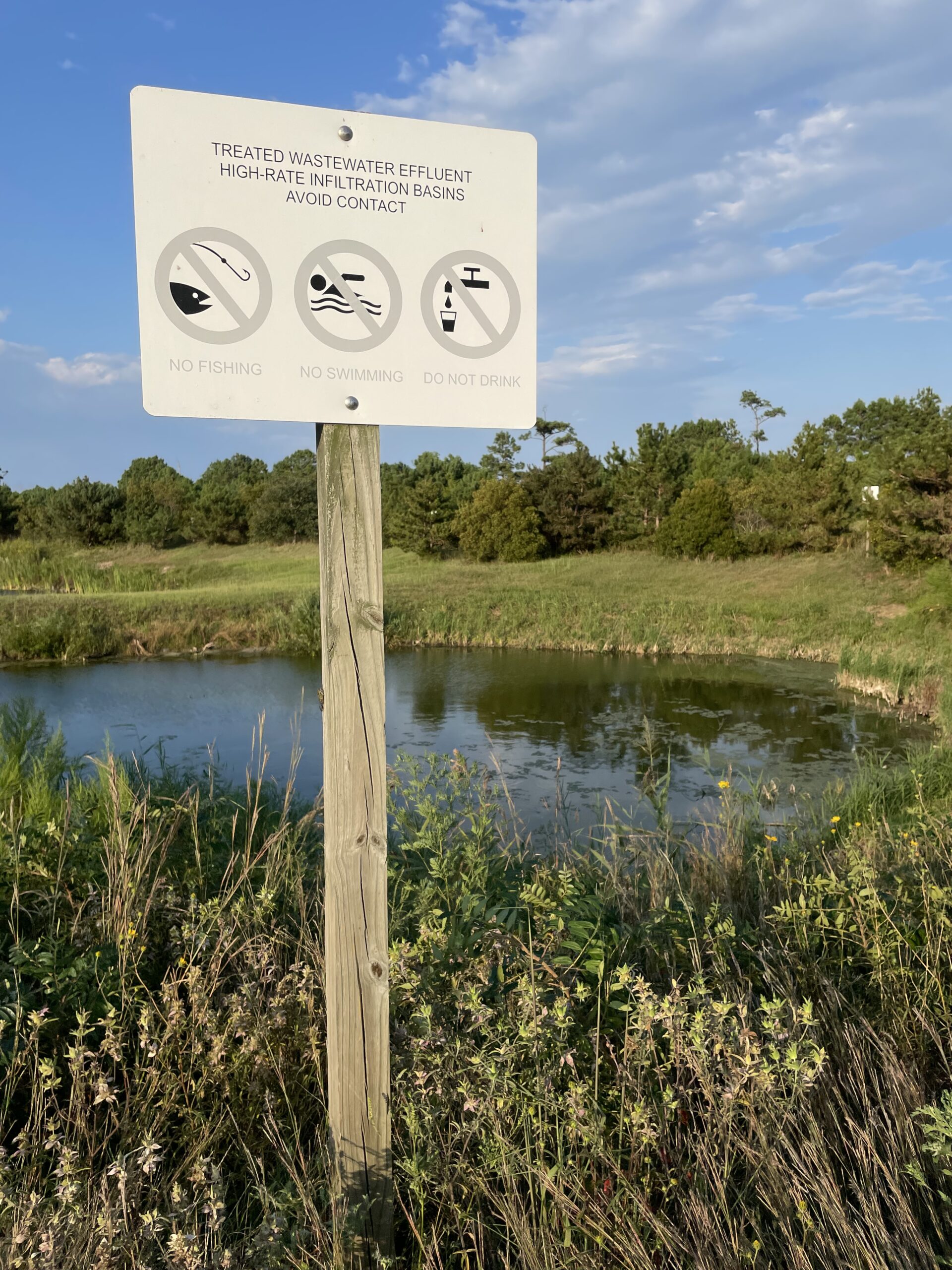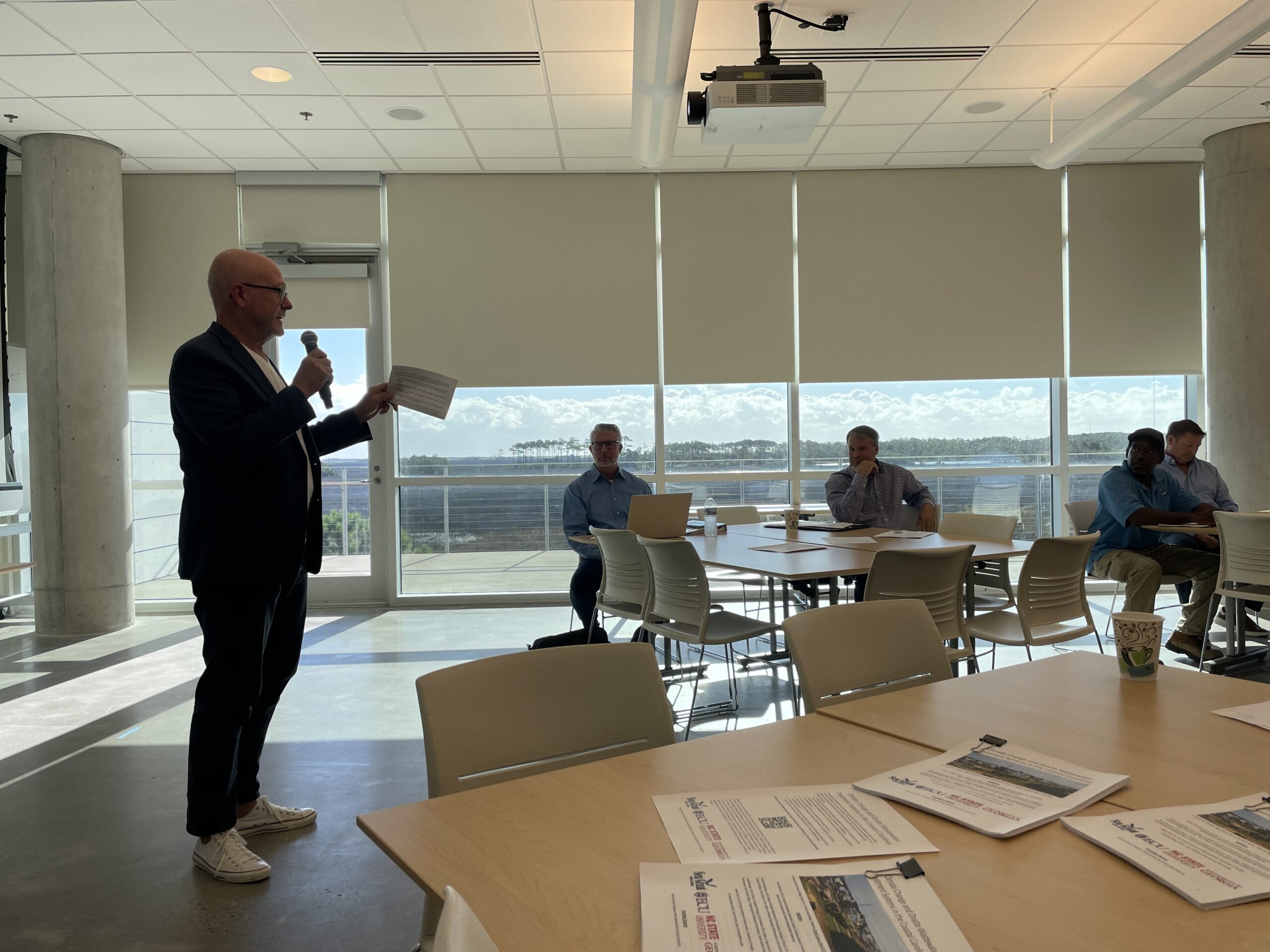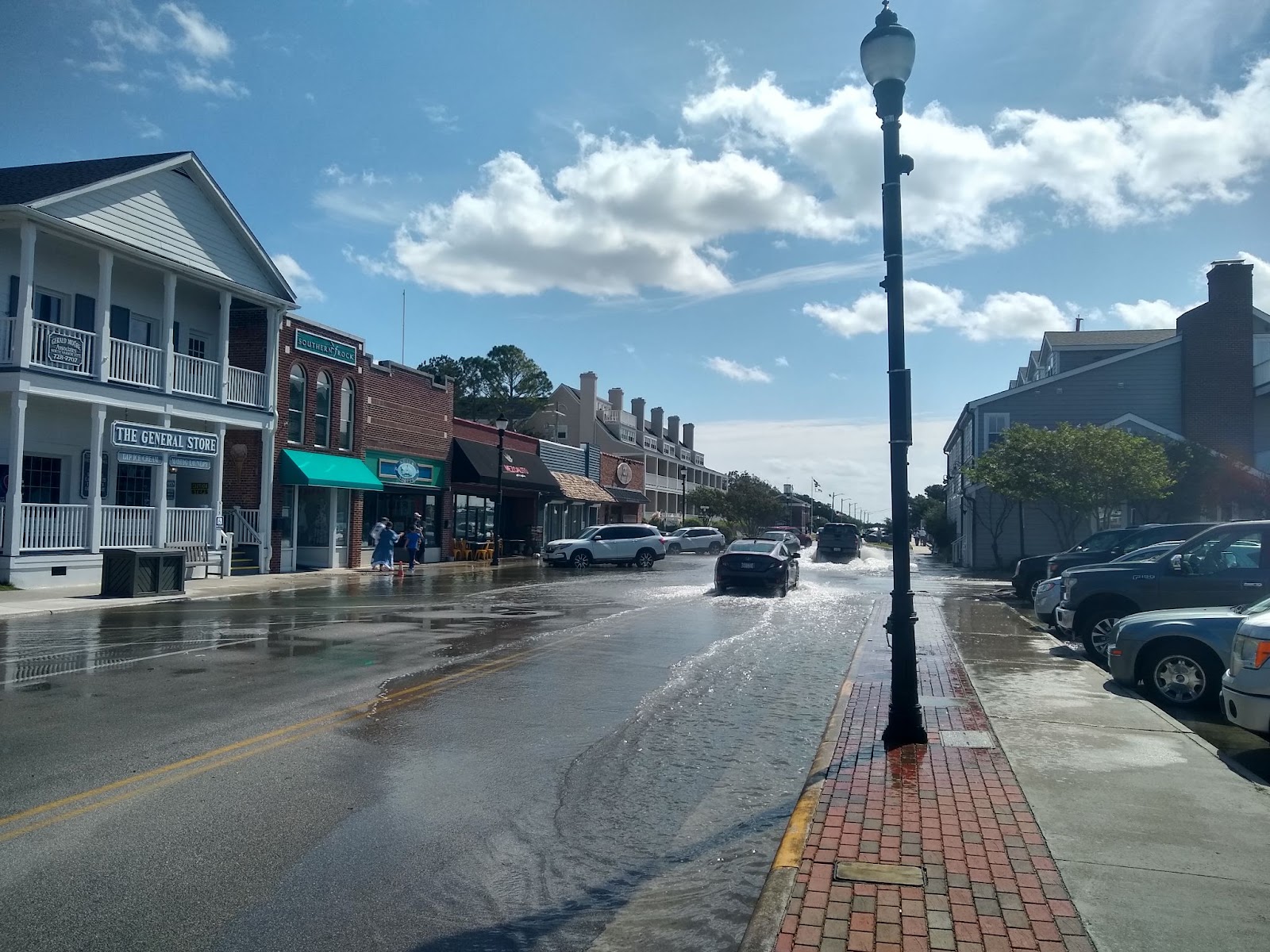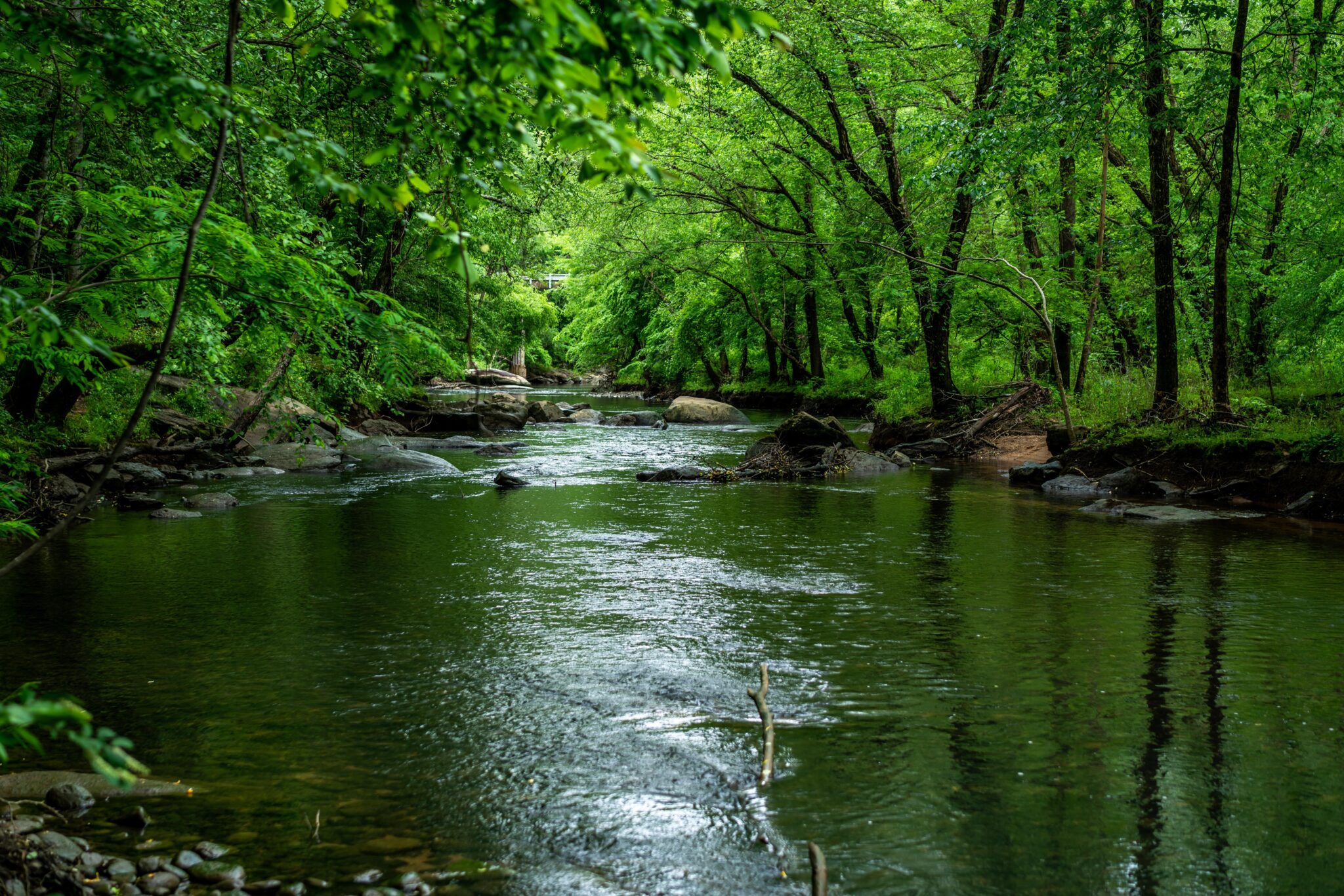New Research Reveals the Impacts of Climate Change on Wastewater Treatment in the Coastal Carolinas
FOR IMMEDIATE RELEASE
Contact: Jane Harrison, jane_harrison@ncsu.edu, 919-513-0122

Researchers from North Carolina Sea Grant, East Carolina University, NC State University, and the University of Georgia completed a three-year interdisciplinary study on the growing concern of climate-related impacts on wastewater treatment systems in coastal North and South Carolina. Their report provides recommendations to address the Carolinas’ significant infrastructure challenges and help municipalities and decision-makers improve coastal resilience.
”While urban areas often rely on large centralized sewage treatment plants to dispose of wastewater, many coastal communities depend on onsite systems,” says NC Sea Grant coastal economics specialist Jane Harrison, who led the project.
The research team of onsite wastewater treatment experts, climate scientists, legal analysts, and economists, examined how onsite wastewater treatment systems, or OWTS, function under current climate conditions. They also identified vulnerability hotspots based on climate prediction models for Nags Head and Folly Beach, S.C. Some of their key recommendations include incorporating weather and climate risk in OWTS site approval and system selection, creating digital long-term inventories of OWTS, and upgrading cesspools and straight discharge systems first to reduce the most pollution at the lowest cost.
Harrison led the project after involvement with a climate vulnerability assessment for the Town of Nags Head on the Outer Banks. “Nags Head is a leader in pursuing climate adaptation, and town staff, as well as the larger community, identified septic systems as an area of vulnerability,” she says.
The research team presented their findings at the Outer Banks Leadership Forum on September 23rd, bringing together elected officials, planners, and engineers from communities like Nags Head, Duck, and Currituck County. The Town of Nags Head convened the group with the help of the Coastal Studies Institute.

“We’re one of the few small towns with the funding and expertise to bring everyone together,” says Nags Head Mayor Ben Cahoon. “We have an obligation to share what we are learning.”
Coastal communities along the Carolinas depend greatly on onsite systems, as opposed to the large centralized sewage treatment plants found in many cities and suburbs. Onsite wastewater treatment can be a septic, cluster, or advanced system and are often more affordable and sometimes the only option for sparsely populated areas. According to the report, almost half of North and South Carolina residents rely on onsite wastewater treatment systems.
OWTS function by treating wastewater from homes or businesses and then depositing treated wastewater into nearby soils. OWTS rely on unsaturated or drier soils that can absorb wastewater and complete the treatment process before wastewater ultimately enters the surrounding water bodies. Contaminants from improperly treated wastewater can cause human illness and ecosystem damage and may ultimately diminish the quality of life in affected coastal areas.
The associated challenges from climate change — increased frequency and severity of storm surges, sea level and groundwater level rise, and heavy rainfall events — all pose a significant risk to OWTS systems.
The research team will present their findings at various forums that bring together scientists, experts, local officials, and system operators to discuss the current state and challenges of coastal wastewater management, enhance public awareness, and share resources. In addition, the team has also released a digital story as a companion to the report that provides an overview of the findings.
The research team includes Jane Harrison and Lauren Vorhees at North Carolina Sea Grant; Charles Humphrey, Michael O’Driscoll, and Guy Iverson at East Carolina University; Jared Bowden, Eric Edwards, and Iain Burnett at North Carolina State University; and Katie Hill at the University of Georgia. The effort was funded by the NOAA Climate Program Office.
Read the full research report here.


